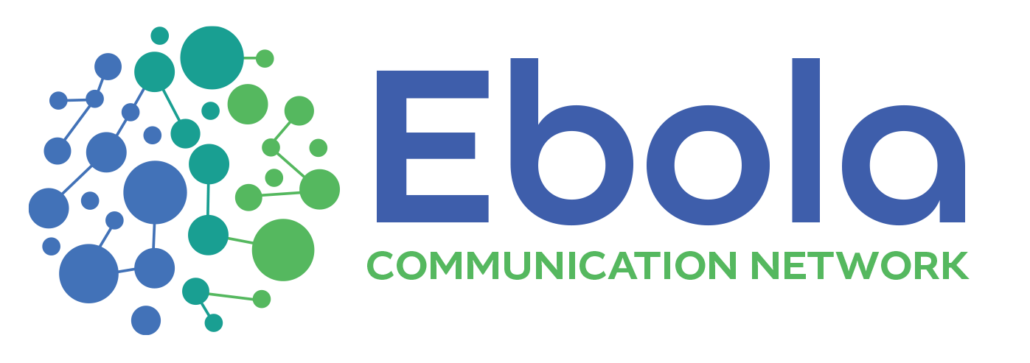Local Leaders’ Declarations to support EVD Prevention
In these two audio recordings two local leaders ( an Imam and a Mayor) expressing their commitment to EVD prevention in their communities.
Sources:
In these two audio recordings two local leaders ( an Imam and a Mayor) expressing their commitment to EVD prevention in their communities.
Sources:
This series of four radio spots in local languages of Guinea features messages for merchants, risks for hunters, cooking bush meat and signs and symptoms of Ebola. A selection of scripts are available in French and English.
Sources:
This video addresses the 90-day surveillance period for EVD. Three videos features a female doctor explaining how and why communities must remain vigilant during this 90-day period, in French and three local languages (Soussou, Poular, and Malinke). One video features a male doctor in French only.
Sources:
This guide is aimed at community-level actors conducting Ebola preparedness activities. It covers key elements of general rumor management as well as specific rumors and possible responses to those rumors and includes a set of practical tools at the end.
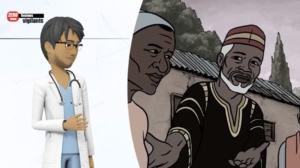 This short video, part of the ‘Zero Ebola’ campaign, reminds communities to be vigilant and demonstrates how to keep Ebola at bay.
This short video, part of the ‘Zero Ebola’ campaign, reminds communities to be vigilant and demonstrates how to keep Ebola at bay.
Source: Zero Ebola Video
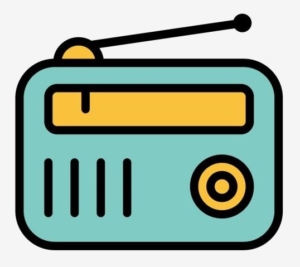 This radio spot in 9 languages is part of the ‘Zero Ebola’ campaign in Mali and reminds the community of the hygiene practices that keep Ebola at bay. The radio script is available in French and English.
This radio spot in 9 languages is part of the ‘Zero Ebola’ campaign in Mali and reminds the community of the hygiene practices that keep Ebola at bay. The radio script is available in French and English.
Sources:
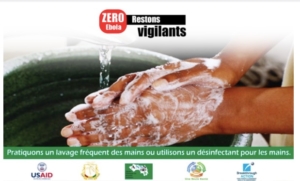 This series of 3 ‘Zero Ebola’ posters reminds communities to practice frequent hand washing, clean households, disinfect food and to visit health centers in case of unusual symptoms.
This series of 3 ‘Zero Ebola’ posters reminds communities to practice frequent hand washing, clean households, disinfect food and to visit health centers in case of unusual symptoms.
Sources:
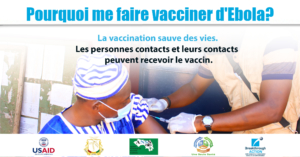 This social media post features messages on vaccination to protect against EVD.
This social media post features messages on vaccination to protect against EVD.
Source: Social Media Post – Vaccination
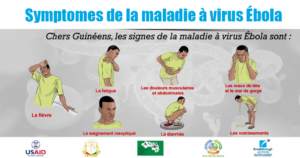 This social media posts features illustrated signs and symptoms of EVD.
This social media posts features illustrated signs and symptoms of EVD.
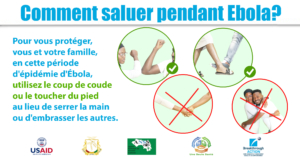 This social media post features illustrated ways of greeting others safely to protect against EVD.
This social media post features illustrated ways of greeting others safely to protect against EVD.
Source: Social Media Post: Safe Greeting

The Ebola Communication Network was originally developed by the Health Communication Capacity Collaborative (Cooperative Agreement #AID-OAA-A-12-00058) and expanded under Breakthrough ACTION (Cooperative Agreement #AID-OAA-A-17-00017) both under the leadership of Johns Hopkins Center for Communication Programs. This website is now maintained by Johns Hopkins Center for Communication Programs and its contents are the sole responsibility of CCP. The contents of this website do not necessarily reflect the views of USAID, the United States Government, or Johns Hopkins University.
